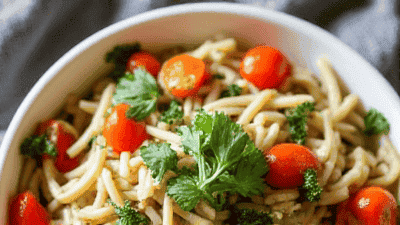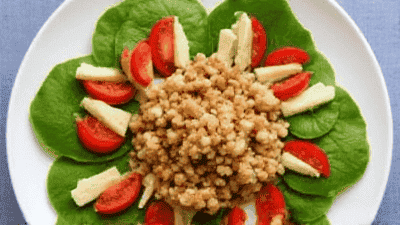
In today’s fast-paced world, chronic inflammation has emerged as a silent villain, linked to a myriad of health issues such as heart disease, arthritis, diabetes, and even certain cancers. Fortunately, dietary choices can play a significant role in combating inflammation and promoting overall health. An anti-inflammatory diet emphasizes the inclusion of nutrient-dense foods while limiting processed items that can contribute to inflammation.
Inflammation is a natural response of the immune system to injury or infection. It is characterized by redness, heat, swelling, and pain. While acute inflammation is a protective mechanism that helps the body heal, chronic inflammation can lead to various health problems and may persist over time without being resolved.
The foods we consume can either promote or alleviate inflammation in the body. Certain foods can trigger inflammatory responses, while others can help mitigate these effects. An anti-inflammatory diet focuses on incorporating anti-inflammatory foods that nourish the body and provide essential nutrients while limiting those known to cause inflammation.

Fruits and Vegetables: A rich variety of colorful fruits and vegetables provides essential vitamins, minerals, and antioxidants that can help reduce inflammation.
Healthy Fats: Foods rich in omega-3 fatty acids, such as fatty fish, nuts, and seeds, are known for their anti-inflammatory properties.
Whole Grains: Whole grains, such as quinoa, brown rice, and oats, are high in fiber and can support overall health.
Legumes: Beans, lentils, and other legumes are excellent sources of protein and fiber while exerting anti-inflammatory effects.
Herbs and Spices: Many herbs and spices, such as turmeric, ginger, and garlic, have been shown to possess anti-inflammatory properties.
Lean Proteins: Skinless poultry, fish, and plant-based protein sources are preferable to red and processed meats.
Dairy Alternatives: Foods such as almond milk and coconut yogurt offer alternatives to dairy products that may contribute to inflammation in some individuals.
Stay Hydrated: Drinking plenty of water is essential for overall health and can help reduce inflammation.
To maximize the benefits of an anti-inflammatory diet, it’s important to limit or avoid the following:
Processed Foods: Items high in refined sugars, artificial additives, and unhealthy fats can promote inflammation.
Red and Processed Meats: High consumption of red and processed meats has been linked to increased inflammatory markers.
Sugary Beverages: Sugars and sweeteners can contribute to inflammation, especially from soft drinks and fruit juices.
White Bread and Pastries: Highly refined carbohydrates may lead to inflammation.
Excessive Alcohol: While moderate alcohol consumption may have some health benefits, excessive intake can promote inflammation.
Incorporating anti-inflammatory foods into your meals doesn’t have to be a chore. Here are ten delicious recipes to help you on your journey to reduce inflammation.
This soothing tea combines the anti-inflammatory properties of turmeric and ginger, making it a wonderful beverage for overall wellness.
This hearty salad is packed with nutritious ingredients, including quinoa, black beans, and healthy fats from avocado.
Roasting brings out the natural flavors of vegetables and makes them even more nutritious.
Fatty fish, particularly salmon, is rich in omega-3 fatty acids, making it an excellent choice for an anti-inflammatory diet.
This nourishing soup is not only delicious but packed with protein, fiber, and essential nutrients.
This breakfast or snack option is rich in probiotics and antioxidants, which can help reduce inflammation.
This hearty stew is packed with plant-based protein and vibrant flavors.
These crispy cauliflower bites make a delicious and healthy snack.
This refreshing smoothie combines anti-inflammatory ingredients for a nourishing boost.
This decadent dessert is not only delicious but is also made with healthy fats and antioxidants.

Variety is Key: Include a wide range of colorful fruits, vegetables, whole grains, and healthy fats to ensure you receive a broad spectrum of nutrients.
Plan Your Meals: Preparing meals in advance helps you stay on track and make healthier choices.
Stay Hydrated: Drink plenty of water and herbal teas to support overall health.
Read Labels: When purchasing packaged foods, be mindful of added sugars and unhealthy fats.
Listen to Your Body: Pay attention to how foods make you feel and adjust your diet accordingly.
An anti-inflammatory diet can be a powerful tool in the management and prevention of chronic diseases associated with inflammation. By focusing on nutrient-rich foods and avoiding processed items, you can enhance your overall health and well-being. The recipes highlighted in this blog post offer delicious and easy-to-prepare options that align with the principles of an anti-inflammatory diet.
Embrace the journey towards better health and well-being by incorporating these wholesome recipes into your everyday meals. Not only will you enjoy a variety of flavors and textures, but you'll also be taking significant steps toward reducing inflammation in your body.